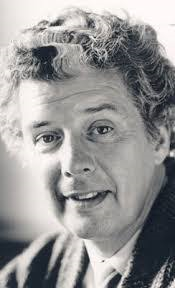Popular Artists on this website
John Shirley-Quirk
Shirley-Quirk was born in Liverpool and sang in the choir at Holt High School (today the Childwall Sports & Science Academy). He played the violin and was awarded a scholarship. While studying chemistry and physics at Liverpool University, he studied voice with Austen Carnegie. Shirley-Quirk was a lecturer in chemistry at Acton Technical College until 1957 and played a part in events leading to the formation of Brunel University. In that period he resumed his vocal studies with Roy Henderson. According to Imogen Holst, it was during this period while "earning his living as a schoolmaster" that Shirley-Quirk joined the Purcell Singers, performing at the Aldeburgh Festival. He was a lay-clerk at St Paul's Cathedral 1961–62.
In 1961 Shirley-Quirk was understudy for the role of Gregor Mittenhofer in the British premiere of Henze's Elegy for Young Lovers at the Glyndebourne Festival, and in the following year made his operatic debut in Debussy's Pelléas et Mélisande as the Doctor. In 1963 he took part as a soloist in Bach's Christmas Oratorio in Ipswich, which was attended by Benjamin Britten, who introduced himself. Shirley-Quirk subsequently joined Britten's English Opera Group (EOG) in 1964. His first role with the EOG was to create the part of the ferryman in Curlew River, followed by the premiere performances of Canticle IV: Journey of the Magi. With the EOG, he made his Covent Garden debut in 1973, creating the multiple roles specially written for him in Death in Venice, in which he appears as various antagonists to the character of Gustav von Aschenbach. He made his debut at New York's Metropolitan Opera in that same role the following year. It was also in 1974 that he sang at the Last Night of the Proms in Walton's Belshazzar's Feast.
With Scottish Opera he sang the roles among others of Count Almaviva, Don Giovanni, Don Alfonso, Mittenhofer (1970, Edinburgh Festival), Eugene Onegin and Golaud. He created the role of Gil-Martin in Thomas Wilson's Confessions of a Justified Sinner (1976).
In Shirley-Quirk's wide concert repertory, he was particularly noted as a fine interpreter of Friar Lawrence in Berlioz's Roméo et Juliette, and in the solos in Bach's Passions, Handel's oratorios, Haydn's The Creation and The Seasons, Brahms's German Requiem, Elgar's The Dream of Gerontius (which he recorded with Britten conducting) and Tippett's The Vision of St Augustine (which he recorded under the composer's baton in 1971). In 1977 Shirley-Quirk created the role of Lev in Tippett's The Ice Break at Covent Garden. He also distinguished himself as an intelligent and sympathetic interpreter of lieder, mélodies and English song.
Shirley-Quirk's vast discography includes many of Britten's works and Mahler's Eighth Symphony under Sir Georg Solti on Decca, and Vaughan Williams' vocal works under Sir David Willcocks and the Choir of King's College, Cambridge for EMI. He also sang in the premiere recording of Delius's Requiem in 1968, under Meredith Davies, shortly after a rare live performance (only the work's fifth performance in 62 years) at the Albert Hall with the same forces. Among his early recordings for Saga of British songs is the first complete version (including the Epilogue) of Vaughan Williams's Songs of Travel.
His vocal art was noted for its "authoritative yet richly communicative" quality, while the gift for musical and verbal detail of a natural Lieder singer and the "oiled-teak smoothness" of his voice took listeners "to profound interpretive depths".
Shirley-Quirk was appointed associate artistic director of the Aldeburgh Festival in 1982. From 1991 he was on the faculty of the Peabody Conservatory of Music in Baltimore,














 My Wish List
My Wish List













